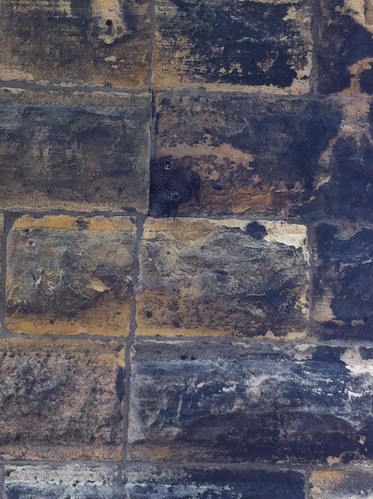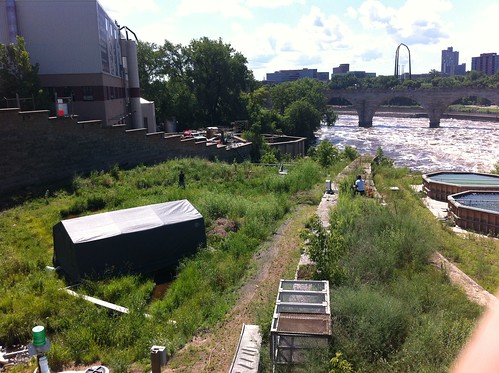
This mill didn't just crumble with age - it suffered a cataclysmic fire started by a homeless person trying to keep warm about 20 years ago. The mills had long since been abandoned, as electricity and diesel motors allowed grain to be processed anywhere. The city turned its back on the mills, and on the river. The mills crumbled...

The dam built on the falls still stands, however. After heavy rains to the north, the river was raging.

The water once used to turn mill machinery continues to pour over the dam, and while the mills are mostly gone, the city has built a small historic park around the mill ruins. The interplay between the river and the people who live near and use it is very poignantly visible here.




Just in a few decades, the river and its associated life are reclaiming the mills. We watched a muskrat forage amongst the old mill channels and tunnels that probably resemble the limestone caverns that were here before the Europeans set foot on the continent...

The swallows nest in the stones of the old bridges, perhaps cut from the gorge walls where they used to nest.

Encouragingly, rather than trying to shoo away the new residents, the people of Minneapolis have welcomed them with open arms.



Seen below, people are using this constructed creek to study riparian ecology. Water is fed in from above the dam, and 'floods' and 'droughts' can be created by the researchers. Just like making a little river in the sand, but on a larger scale. I wanted to climb down there and check it out, but it was fenced in and I didn't see any news of tours or anything like that...

Some of the mill machinery has been repurposed to make hydroelectric power, and there is talk of expanding this in the future. In the mean time, the water continues to roll over the dam, heading down to the Gulf of Mexico as it has done over the millenia in the past.


I visited two very neat museums in Minneapolis-Saint Paul which i will post about in a future post.

These are beautiful pictures!
ReplyDeleteKitchen Countertops Long Island